

What is a Fan Coil Unit (FCU)?
A Fan Coil Unit (FCU) heats or cools the air inside a space. A built-in fan draws the air into the FCU and through a heat exchanger for temperature conditioning. The air comes out of the FCU either cooler or hotter than before. FCUs will generally have a chilled water coil for cooling and either a hot water coil or an electric element for heating. In commercial applications fan coil unit control varies dramatically, from a thermostat that simply opens and closes a valve, to DDC controlled units that infinitely vary air volumes, and modulate valves.

Schematic
The figure shows the schematic of a typical application in a room with two fancoils, each containing a Belimo Energy Valve™, managing the thermal power supplied to the fancoil. The use of EVs offers the following advantages:
- Dynamic hydraulic balancing (in any load condition) of the water flow achieved by the pressure independent control valve
- Using the physical valve positions of the Energy Valves™ in a building, pump speeds can be optimized to provide just enough pressure to satisfy the index unit.
- Full system transparency (volumetric flow, temperatures, cooling/heating output, …) with data recorded on the EV or, optionally, in the Belimo Cloud

Common Issues with Fan Coils and Why You Should Choose the Belimo Energy Valve™
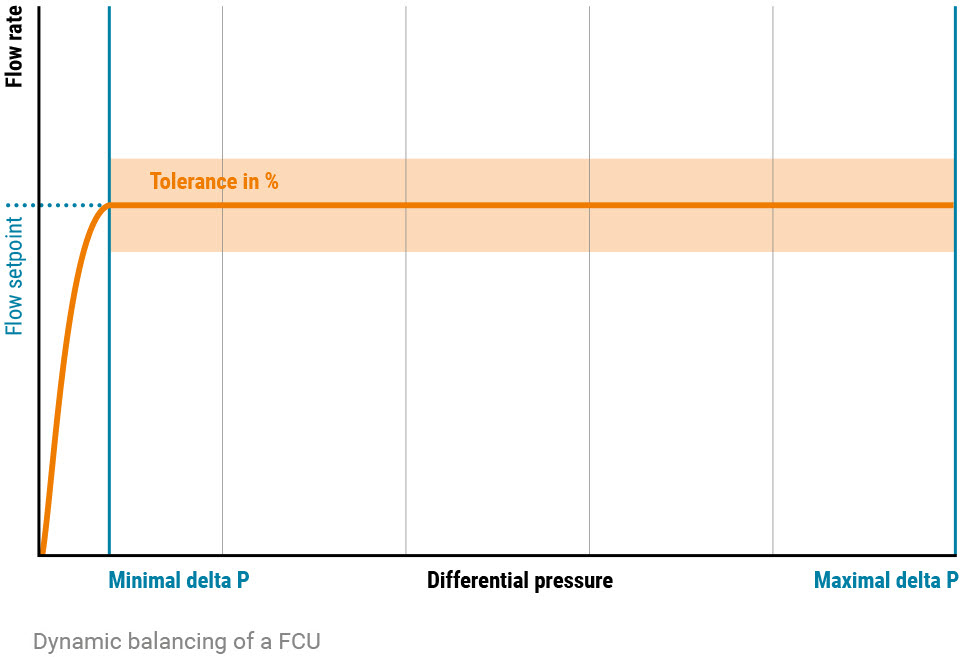
A FCU is commissioned to the following values, design water flow is set to 0.11 l/s (0.029 GPM), with 23 °C (73 °F) air entering the unit. As the system is dynamic after a short period of time, the pressure in the system increases due to changes in other locations of the hyrdonic system. In this specific FCU, the increase in pressure has caused the flow to increase which results in overflow of the FCU, consequently lowering the delta T and lowering the efficiency of heat transfer.
As a result an occupant of the space may have found the air flow bothersome and manually set the fan speed at low, as space temperatures rise the valve is commanded further open by the controller until the air is simply unable to remove any more energy from the heat exchanger. This results in the return water temperature being cooler than expected. With the water flowing too quickly for the air flow we have a classic recipe for low delta T, this is effecting not only this unit, but is reducing the capacity of the central plant, and the overflow is significant point of consumption for the pumps with our flow now at 0.14 l/s (0.037 GPM).
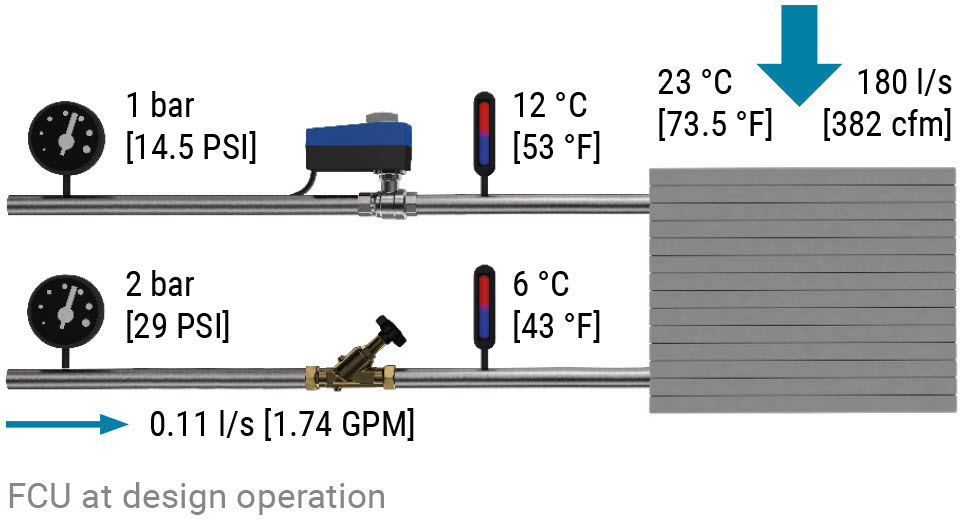
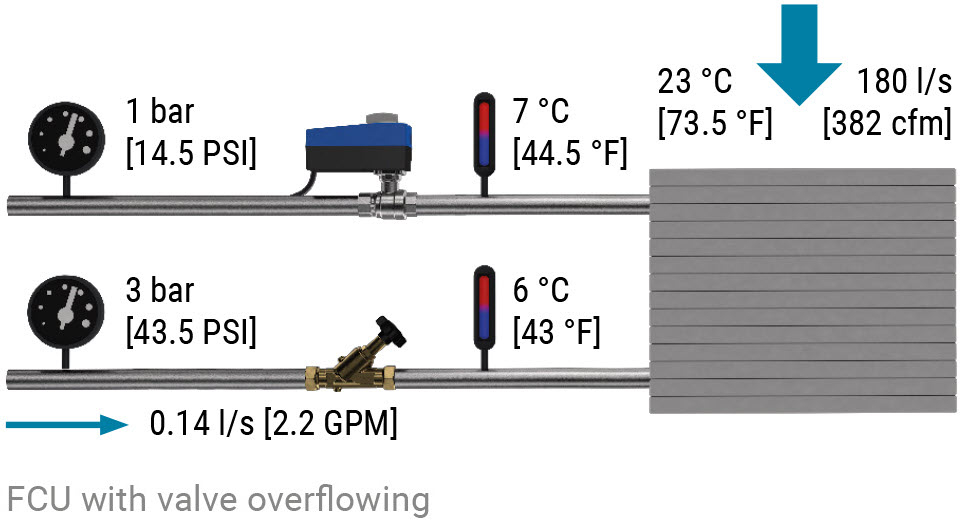
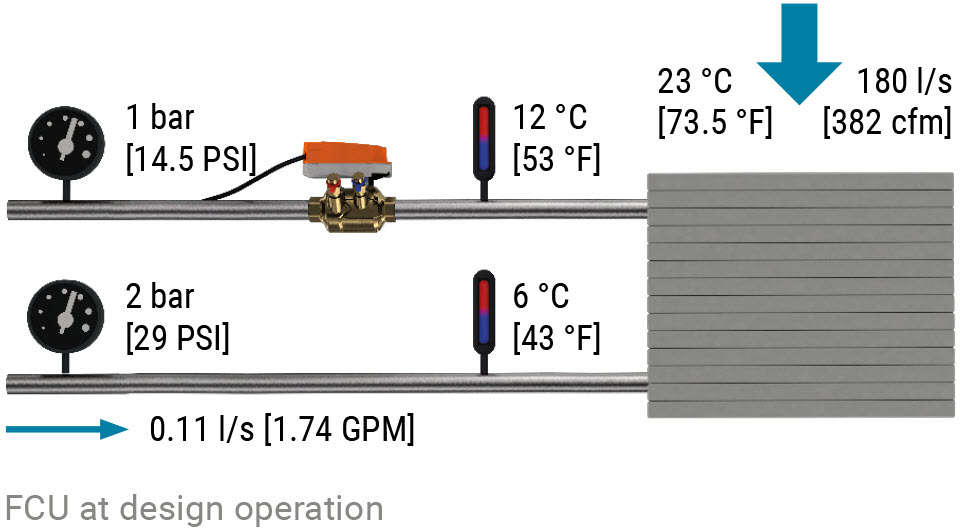
There is the same FCU working as expected, design water flow is set to 0.11 l/s [0.029 GPM], with 23 °C [73 °F] air entering. Again the system delivers a pressure increase due to changes in other locations. The electronic flow sensor in the EV detects the flow increase before the room sensor can register an increase in space temperature and allows the valve to close slightly to avoid reaching the saturation zone.
If the FCU has been held on low fan speed again. As space temperatures rise the valve is commanded further open by the controller which would have resulted in the air being unable to remove any more energy from the heat exchanger. The EV‘s fixed Delta T Manager recognizes the diminishing delta T and overrides the control signal and does not allow the valve to open further, this eliminates the over flow condition.
The EV continually measures the flow and calculates if it needs to compensate or not, based on the control signal input as well on the Delta T Manager set point. The Delta T Manager has slowed the water down to ensure the heat exchange is optimal for the air volume set by the user. This saves pump energy and keeps the system permanently optimized.
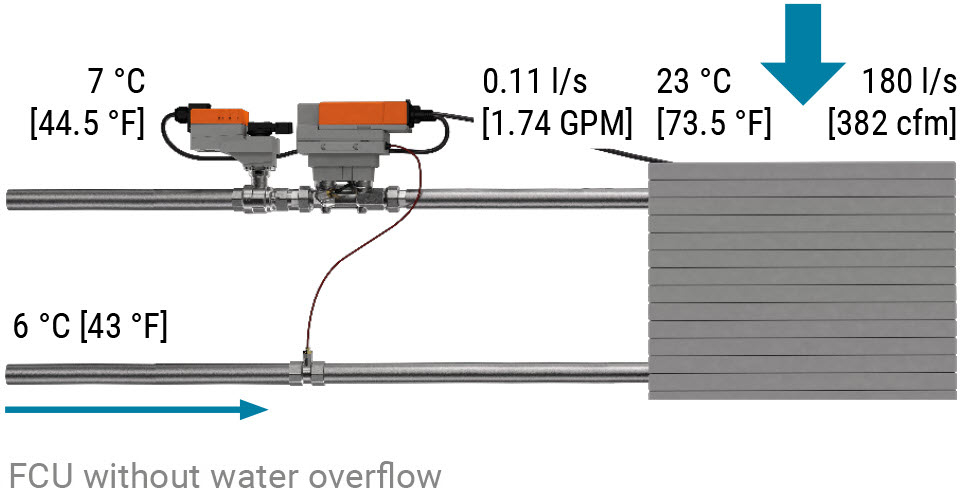
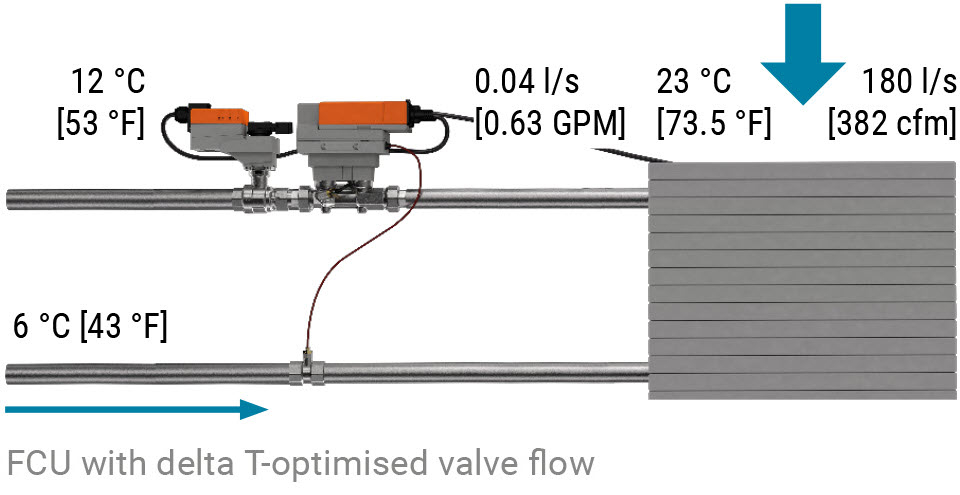
Success Story: 5-Stars for Energy Efficiency at Marriott Hotel Al Jaddaf in Dubai
The Marriott Hotel chain opened its hotel experience on January 15th 2014 in Dubai, UAE.
With its brilliant design and perfect location in Al Jaddaf, this 5-star hotel has an abundance of thoughtful amenities.
These include fully automated luxury guest rooms and suite accommodation that encourages relaxation, with luxury bedding, marble bathrooms, high-speed Internet and flat-screen TVs, also providing views of the Dubai skyline. The hotel offers 352 luxury guest rooms and 128 hotel apartments.
The Belimo products could be efficient implemented and enable a sustainable and maintaince-free system.
-
Reference – Marriott Hotel «Al Jaddaf», UAE
(pdf -
2.12 MB)
